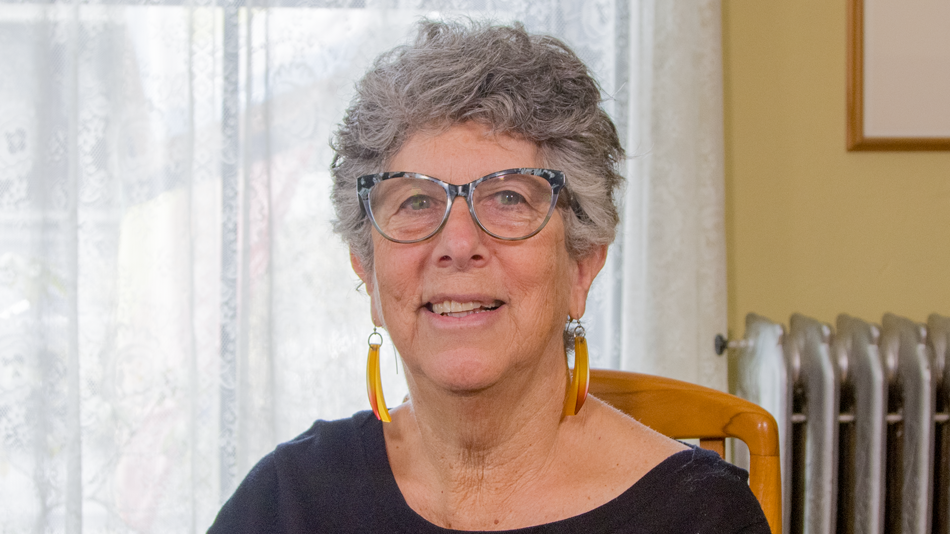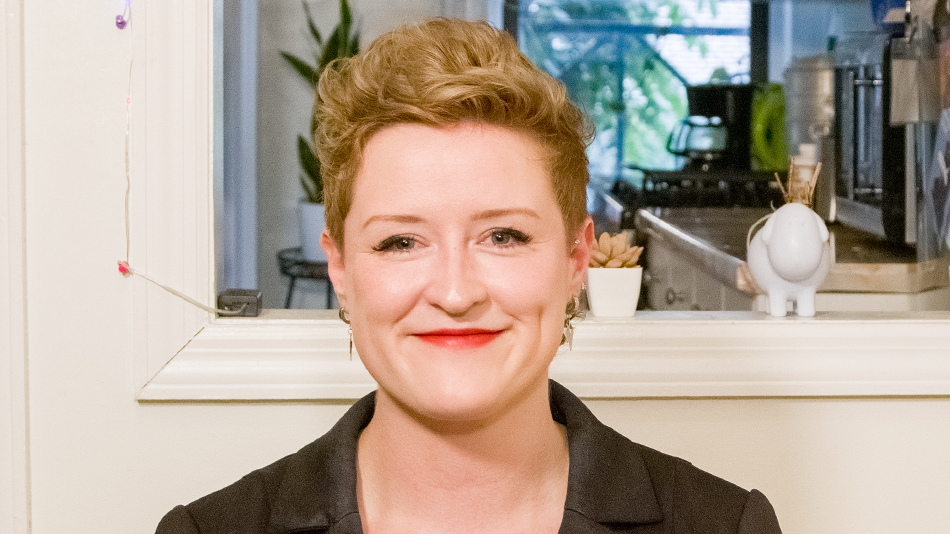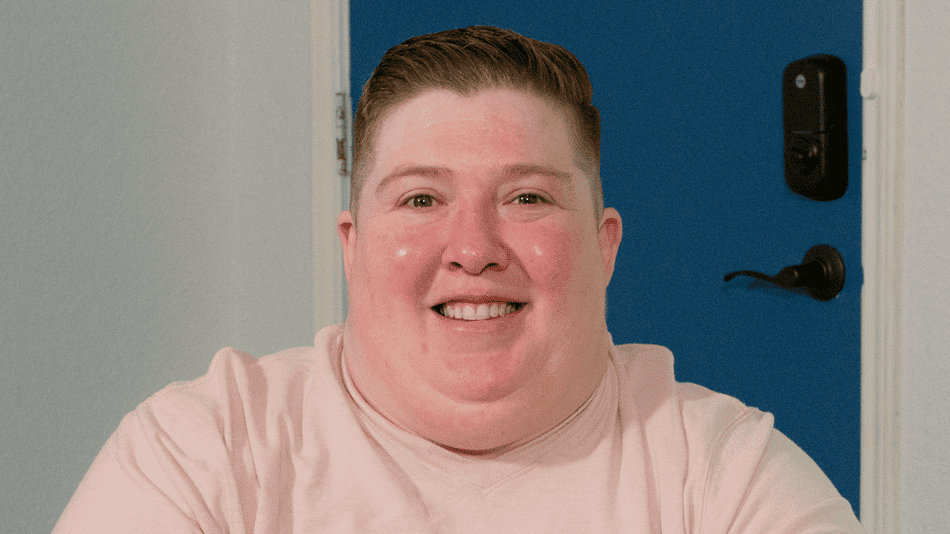Nathan: Welcome to this week’s Story Update. Today, we’re going to be speaking with Ingrid Galvez Thorp, whose story we filmed about four years ago. Before we talk to Ingrid, let’s take a look at her story.
Ingrid: My name is Ingrid Galvez Thorp and I’m originally from New Rochelle, New York.
Leading up to the ‘96 Summer Olympics in Atlanta, I found out at my job that there was opportunities to transfer. They were looking to build out diversity and so they were actively recruiting people that were diverse, who were from other countries, who spoke other languages. They wanted to really showcase that they were a diverse company. And I jumped at the opportunity and I was thrilled.
Within a couple of weeks of getting there, there’s a huge gathering of all these recruits from all across the country, who were basically the diversity team. And so here we are. We get invited by, not just our boss, but our boss’s boss. And she is a big deal.
Everyone’s getting to know each other. “Where’re you from? Oh, what school did you go to?” and everyone’s having a great time. Lunch is being served, swept away. Dessert is being served, swept away. The next thing you hear is her asking the server for a hot cup of coffee. He brings her a cup. She starts drinking it. Everybody’s – the conversation picks up again. The next thing you notice is that the server back in he asks how everything is and does anybody need anything else.
And so at this point, she picks up her coffee and sticks her pinky in it and says, “I piss hotter than this. I ordered a hot cup of coffee. Now if you could or if you would, please bring me a hot cup of coffee.” Puts it down.
We all had this, almost like this, bubble above our heads, saying, “What the hell did I just signed up for?” And I just breathed in and breathed out and tried to keep cool and pretend that “no big deal, no big deal.” Then everybody goes back to their respective bases and works and does everything they’re supposed to do.
So, you know, here I am. I’m excited to meet my new colleagues, my new co-workers. And I’m getting to meet them one at a time, based on our schedules and when we’re being assigned to work together.
And there’s one gal who came in and was like, “Oh, hey, you know, so-and-so, you know, glad to have you,” and then when I spoke up and she asked me where I was from and I told her I was from from New York, she was like, “Oh, you’re a Yankee.” I had been warned that when someone says stuff like that that there’s hidden meaning behind it. And I thought, okay, so this is where I am.
I went with an open mind and an open heart, and it was really sad for me to recognize the subtle digs that were taken against me. You knew who was originally from the area and you definitely knew who they had imported in, if you will.
Here I am, showing up to work, plugging along, and a few months later, I get a call from my boss’s boss. She invited me to lunch and it’s just the 2 of us. It was at California Pizza Kitchen. We sat across from each other in a small booth and she wanted to know how things were going for me and whether I was experiencing anything negatively.
I shared with her that I didn’t think anything bad was happening. I thought that I was showing up, doing a good job, and that everything else was okay. She then went on to tell me that some of my colleagues had approached her letting her know that they had a difficult time with me and that they were uncomfortable with me. And she stopped.
She says, “It’s been brought to my attention that you’re a lesbian.”
All I could do was gulp and utter, “Yes, I am.” I was cringing on the inside. I didn’t know – did my answer mean that I was fired? I had no idea. I just looked at her.
She leaned over and she said, “My sister is a butch dyke.” She got a big smile on her face and just said, “Now, if anybody gives you a hard time, don’t mess with them. You just come see me and I will handle it.”
That moment, clearly, still with me. Twenty-one years later, I’m still affected by those words, simply because those words gave me permission to show up as who I was, gave me permission to be authentic in my personal and my work life, and I had an ally.
The lunch with my boss changed me. And the ways that it changed me was it made me a much more dedicated employee, a much more conscientious employee. It really, I don’t know, it dug to the core of fully embracing the company that you’re working for. Championing for your company, being an advocate for your company, and being proud of where you’re working, and letting everybody know, “Hey! I work here! And yes, I’m really proud of it because people that work here are great! And we do good stuff and we make good things happen and why not?” And so, I rode that for as long as I could, for sure.
Nathan: Okay, welcome Ingrid. How are you doing today?
Ingrid: Really well, Nate, thank you so much for having me. This is… this is a fun little follow up thing, isn’t it?
Nathan: Yeah. People seem to be enjoying it a lot and, you know, people really like the stories and people connect with the storytelling. And I… based on the comments and the feedback, people are really enjoying kind of like a. Then-and-now, you know, where-are-they-now type thing.
Ingrid: That’s definitely how it feels.
Nathan: So, yeah. Well, thanks for taking the time out of your day to meet with us.
I have to tell you ever since first hearing your story, I, for years now, every time I have coffee, I think about you and I think about your story and whether my coffee is the right temperature or not, and your… and your boss.
Ingrid: Yes. That was… that’s a moment that’s seared in my brain, particularly, the location where we were, who was at the table. And I just remember everyone side-glancing. Did she really just say that? I can’t believe it. And that was that moment of, you know, and we’ve all had those, you know, maybe not that exact moment, but certainly moments where someone we work for or we work with says something so polarizing and it instills a certain kind of intimidation, even fear, in those that are at the table.
Nathan: Absolutely. Bosses… bosses are really good at doing that.
Ingrid: Yes, they are. They are. And she was definitely a pleasant surprise in every… in every way that a boss could. I…
Nathan: Yeah. Sorry. Yeah, that’s what I kind of wanted to get to with the big takeaway from your story in general, obviously in your story it’s revealed that your boss is a big ally and really helped you. I mean, in a way kind of gently push you out of the closet at work.
And, you know, it seems so obvious. I don’t know if things have changed so much so recently in terms of, you know, progress for the queer community, but – it almost sounds so obvious when I say it, but for any employer out there who is wondering where to take a stand on encouraging your employees to come out at work, your employees work harder and work better and will enjoy working more if they’re able to be themselves at work, and to be out at work. And it’s like there’s… it’s just a win-win, that you will get a better, more productive employee. You’ll get a happier employer… employee. Better work morale. You know, there’s… there’s really no reason not to encourage, people bring their full selves to work.
Like how do you… how do you look back at that story and how it applies to your life today? Or what are your thoughts on all that?
Ingrid: Actually, I have used that story when I do D & I sessions that speak to the power of an ally, because it really instilled in me, you know, even sharing the story, I felt like I was reliving it rather than retelling it. And there’s a difference in that.
But what I’ve done since that… since that experience, I’ve always used that story as a source for folks who are afraid or don’t know where to begin to be. In short, a sponsor, an advocate, a co-conspirator if you will, in this space of inclusion. And she really did teach me the power of allies. And in particular when you were in a position of leadership, one of the things that I learned from that experience is when you are in leadership, what you do matters, what you say matters and how you treat people matters. And planting your flag in this space of inclusion is probably the best thing you can do for leading an organization, particularly in the diverse environments in which we work today.
I mean, my story took place like 25 years ago. And very little has changed in certain parts of the country, which is, you know, not always the best case. But when you think about it, my experience was 25 years ago, right out of college, I had no idea what I was in for. And yet here, this is how I was confronted with my authenticity, my own leadership. And that’s the… I guess that’s lent itself to the ways in which I engage the next generation of queer youth, queer professionals, and queer entrepreneurs. In really giving them that space, almost that grace, to say whoever you are, however you are, you’re just what you’re supposed to be, who you’re supposed to be. And, go for it. You’re normal. You’re regular. You’re… you’re just like everyone else.
And I think that’s the thing that most employees are looking for from their bosses is to just have an acknowledgement that they’re worthy, they’re valued, they’re appreciated. And that’s really what I gained from that experience. And it was a pretty powerful experience for me because I didn’t know… in the moment, you don’t know the impact of something, some conversations, some exchange that you’re having. It took a while for me to be able to look back on it and reflect. And I think it wasn’t until you approached me about doing a story that I even considered, Would that make a good story? I don’t know. What could anyone learn from it? I don’t know. But I think the value in sharing stories and experiences really is demonstrating that we can all find the lesson learned in everyday experiences that happen every day.
Nathan: Yeah. And I think the answer is certainly a resounding yes. That people related to your story and connected with it based on all their comments and the views.
I’m really curious, have you been in touch with that boss since then? Or does she know that… the impact that that experience had on your life?
Ingrid: I don’t think so. I, well, one, I have not been in touch, since there are very few people that I made solid friendships with when I lived in Atlanta and those people are still in my life and they were my peers. But the, you know, she was like, I don’t even know how many layers above the rest of us. But when she moved out to her next role, she really did seemingly part ways with the entire team, just because it was distant, it was a different time. But I would love for her to know that she was an incredible ally. She demonstrated to me what allyship looked like, how advocacy works, and also how to advocate for others. And particularly when you’re at a position of power and leadership and authority. And I think, you know, there’s distinctions in each of those words, but when you have access to all three, that’s when you can really make a difference.
Nathan: Yeah. And what would you… what would you tell someone who is in the position that you were in in your story? You know, young, just out of college and had this new… it could be corporate job or not corporate job. It doesn’t really matter just… and they’re not comfortable being out at work. Would you encourage someone to take those steps themselves, or look for signs of it like a comfortable way to come out at work? Or, you know, what’s your advice for them?
Ingrid: Well, I think, first, I would, I would ask why they’re working where they’re working. In terms of, did they feel an affinity for the work or did they feel an affinity for the company, the brand, or the people? And if, you know, depending on their response would depend on the answer, but I would always encourage everyone to show up authentically. And if you’re going to feel welcomed or not, they’re going to let you know. And that’s whether you’re comfortable in being out or not comfortable in being out, people will let you know whether you are genuinely in a place where they feel you belong. And that there’s a space for you.
And I think that is so much more important than… you know, just showing up authentically is so much more of the weight of actions rather than organizations. But if they’re… if someone is working in an organization where they don’t feel comfortable being their authentic self, I would say, reach out! Reach out to folks in your community and find ways to navigate away from that company towards something that is a little bit more aligned with who you are as an individual, and, find… maybe find new employment.
I know that that’s easier said than done, but it can happen because there is a… in particularly now, there is such a broad queer community that you know, all you have to do is say Hi, I’m a young queer person, and I’m interested in learning about queer history. There’s a thousand people within a stone’s throw that’ll say I can share some stories with you. I can teach you something. I can add you to some resources. And that wasn’t the case back then. So I think at times have definitely changed for the better in that regard. Also the fact that there’s more access to GSAs or ERGs, and that’s become so much more of a corporate focus.
Nathan: Yeah, and I would… my final thought on all this is your story was told from the employee perspective, but it’s really a strong message for the employers that there’s a lot of very qualified and amazing LGBTQ people out there looking for work, but they only want to work at places is where they can actually be themselves. So if you are an employer, you are really missing out on a huge well of talent if you do not make it clear that everyone is welcome at your company. So, at least, that was my takeaway from, from your story and also knowing all the work that you do today in diversity and inclusion.
Ingrid, is there anything else before we sign off that you wanted to share with everyone?
Ingrid: I think the most important thing that any one of us can do is to be open to learning, remind ourselves that this is a journey. It’s not a destination, that there’s always going to be work that needs to get done. And that, you know, we are stronger when we work together. I think that’s really important.
Nathan: Absolutely. And I, yeah, I think that really sums it up in a super concise way. Well, thank you so much for taking the time to chat with us. and thank you so much for all the work that you do in and out of the workplace, with diversity and inclusion and fighting for what’s right in so many aspects of our community. So, really appreciate it.
And everyone else, if you have, anyone watching, if you have questions for Ingrid, leave them in the comments and maybe she can check back periodically and answer them. And until next week’s Story Update, I hope everyone’s doing well. And we’ll see you next week. Thanks.
Ingrid: Thank you.








Share